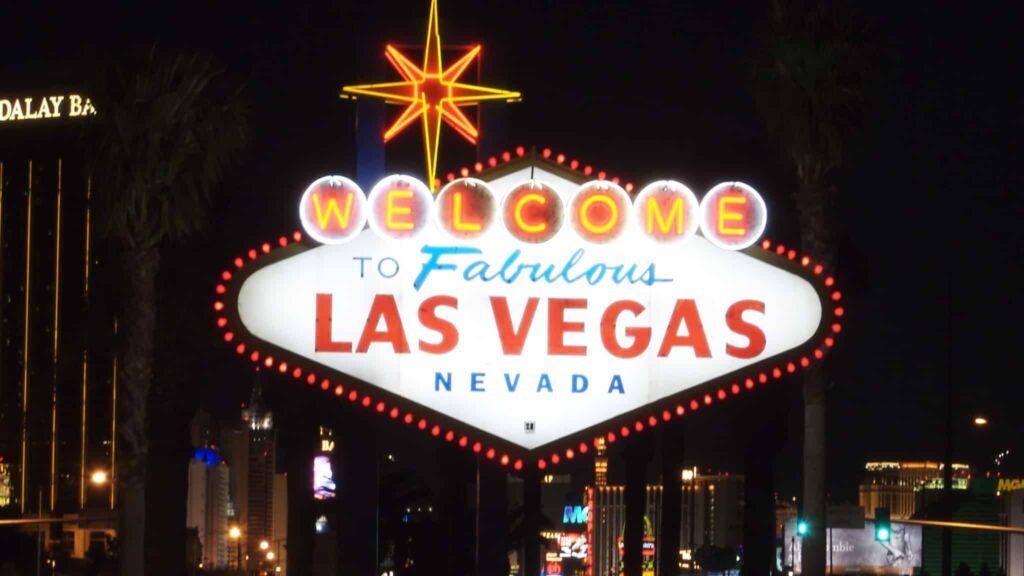The evolving landscape of gambling makes it important to assess its economic impact on communities and policy plans. This detailed report covers the diverse effects of casino gambling on local financial health, weighing the prospects and pitfalls for residents, novices, and experienced players.
Economic Growth Through Jobs and Profits: A Look at Casino Gambling
Casinos are often seen as a potent economic influence by promising job creation and bolstering local income. Building a casino resort brings numerous positions, such as gaming staff, hospitality workers, management roles, and security, giving locals job options and leaving their earnings within the local economy, a crucial benefit for economically struggling regions. Casinos significantly contribute to regional financial stability, supporting up to 1.8 million jobs across diverse skill levels and educational requirements in the U.S.
Casinos are also important contributors to tax income for regional and state governments. This money can be allocated to essential services such as schooling, infrastructure upgrades, and public health initiatives, thereby elevating the living standards for community residents. In 2023 , U.S. casinos contributed $52.7 billion in taxes, highlighting their substantial financial benefits. Some states specifically target this revenue for senior services and urban development, ensuring positive impacts where it's needed most, like Pennsylvania's allocation for the Property Tax Relief Fund to aid homeowners.
Besides the direct monetary contributions, casinos can enable broader economic growth by attracting tourists and gamblers, thus boosting business for local entities such as hotels, restaurants, and shops. This influx of outside visitors can stimulate business expansion and diversify the local economy. For example, Niagara Falls, Canada, witnessed a tourism boost following the inception of Casino Niagara and Fallsview Casino Resort, significantly driving hotel and dining income city-wide.
Building casino resorts also initiates a strong but temporary economic boost. These large projects bring demand for construction workers and suppliers, circulating a significant amount of money within the economy during development. This initial influx is beneficial; however, long-lasting economic benefits hinge on the casino’s enduring operations and success.
Weighing the Hidden Costs and Economic Outlays in Gambling
Despite visible financial perks, the adverse effects of gambling on local economies must be acknowledged, especially the social costs related to gambling addiction. More gambling venues can increase cases of gambling problems, leading to personal financial downfall, joblessness, and a higher need for community support, which can negate the economic advancements from casino incomes.
Gambling problems can severely impact economic productivity as affected individuals may lose jobs or underperform, undermining financial stability both personally and within the community. Such challenges can also lead to higher crime rates, exacerbating public spending on law enforcement and judicial systems, as people attempt to address gambling-related debts unlawfully. Increased criminal activities can deter potential investors, adding to the economic strain.
A downside to gambling operations is the financial outflux it can cause, as casinos earn money directly from gamblers — often locals — leading to local capital depletion. This is worrisome in regions with lower incomes, as the financial burden of gambling falls hard on the vulnerable, reducing money. That could have benefitted various local businesses.
Dependence on Casino Revenue: Risks and Economic Vulnerability
Economic activity focused around a casino may skew local business dynamics making them overly reliant on the influx due to casinos, leading to vulnerability in case of industry changes. Communities that lean heavily on casino revenues might face an economic crisis should they lose the casino income.
The Power of Tourism Driving Casino Profits
Whether a casino significantly brings in tourists from outside of the area determines its economic effectiveness. Casinos thriving on tourists infuse new money into the local market, creating a cycle of economic growth.
Casinos focusing on local clientele rather than tourists might offer lesser economic benefits, with internal revenues just circling within the local geography. Instead, strategic marketing and thoughtful geographic placement can improve their economic standing.
The production of a positive tourist influx anchors on a mix of factors such as strategic location and effective marketing to draw regional and global tourists. A robust tourist draw can amplify a casino's economic impact.
Long-Term Infrastructure and Economic Development Investments
How Gambling Affects Local Economies - Insights by GambleRoad
Gambling's effect on local economies is something communities and policymakers must understand deeply, especially since the gambling sector continues to evolve and expand.
Explore the Newest Casino Offers, Exclusive Promotions, and No Deposit Bonus Coupons. Fair Reviews of Casinos Provided by uptownpokies-app.com
Exclusive casino bonuses are special offers given to a specific group of players, like high-valued patrons or those in a VIP program.
No deposit bonuses are complimentary sign-up perks provided to fresh registrants at the specified casinos, requiring no initial deposit.
Free spins are a type of bonus from online casinos, allowing players to try certain slot machines without risking their own money.
Deposit bonuses are incentives for registering players after they make their first deposit in the listed casinos.
Economic Effects of Gambling in Community Settings
The multifaceted impact of gambling, especially casino operations, on local economies is essential for community welfare and policy decisions, highlighting both positive outcomes and critical issues impacting all levels of gamblers. This discussion explores how casinos can influence local economies in diverse ways, including benefits and significant challenges faced by the general public and different types of gamblers.
Economic Growth Through Employment and Revenue
Casinos are often praised for their potential to stimulate economic growth by creating new jobs and boosting local tax income. Building a casino complex opens numerous employment prospects, ranging from casino operations to hospitality and security, thus providing diverse job options for locals, especially in economically struggling regions. Casinos act as stable income providers, enhancing the economy's overall health, with the industry supporting an estimated 1.8 million jobs nationwide across various skill sets and education levels.
Additionally, casinos generate considerable tax revenue for municipalities and states, funding vital services like education and infrastructure improvements. For instance, U.S. casinos contributed $52.7 billion in taxes in 2023 , which supported crucial public services and community enhancement projects. Some jurisdictions allocate specific portions of these revenues for elderly care and urban improvements, ensuring targeted developmental benefits. In Pennsylvania, for example, casino taxes support the Property Tax Relief Fund, easing homeowners’ tax burdens.
Besides direct financial contributions, casinos encourage broader economic growth by attracting tourists and bettors, benefiting local hotels, eateries, and shops. This leads to a bustling environment and diversifies the local economy, minimizing reliance on any single industry. Local businesses often thrive on tourist influx connected to casinos, as seen in Niagara Falls, where casino establishments revitalized tourism, significantly boosting hotel and restaurant revenues.
The construction of casino resorts provides a temporary but impactful economic boost with demand for workers, suppliers, and services, leading to substantial local investment. This initial capital influx can create ripple effects, stimulating demand for products and short-term job opportunities. However, these temporary jobs highlight the need for sustainable casino operations to ensure ongoing economic benefits.
Social Challenges and Economic Concerns
Despite economic positives, gambling’s negative impacts on communities must be acknowledged. Increased gambling can prompt problem gambling, resulting in financial crises, lost jobs, and heavier demands on social services, straining community resources. There is a documented correlation between casinos and higher rates of gambling-related issues such as addiction, which can considerably stress public systems.
External Resources:
- Federal Reserve Bank of St. Louis
- Problem gamblers face financial repercussions, including reduced work output, increased absenteeism, and potential job loss, negatively affecting community economic productivity. Moreover, the financial strain from gambling addiction can lead to higher crime rates as people might resort to illegal activities to finance their habits, thus raising the costs for law enforcement. This delicate economic impact can pose long-term issues that may not be immediately obvious but become significant over time.



